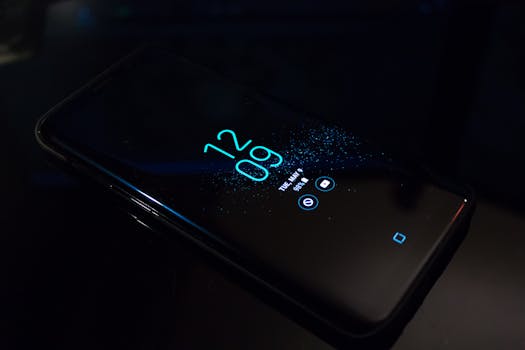What is persistent notifications?

What is persistent notifications?
In today’s fast-paced world, staying organized and on top of tasks is more crucial than ever. This is where persistent notifications come into play, becoming a key feature in productivity applications. These notifications serve as constant reminders, ensuring that you don’t overlook important tasks or deadlines. Understanding how they work can transform your time management strategies.
Understanding Persistent Notifications
Persistent notifications are designed to remain on your screen until you’ve interacted with them. Unlike standard notifications that fade away after a short period, persistent notifications demand your attention until you take action. This feature can significantly impact how you manage tasks and reminders.
Definition and Characteristics
Persistent notifications are alerts that stay visible on your device until you acknowledge or dismiss them. This characteristic makes them invaluable for reminders, as they help prevent important tasks from slipping through the cracks. Unlike their fleeting counterparts, persistent notifications are intended to keep you informed continuously.
Comparison with Temporary Notifications
To fully grasp the significance of persistent notifications, it’s essential to compare them with temporary notifications. Temporary notifications appear briefly and then disappear, requiring you to swipe or click to view them again. For example, a temporary notification might alert you to a new email and vanish within seconds, leaving you to remember it later.
On the other hand, persistent notifications—like those used in task management apps—stay visible on your screen until you mark the task as done or opt to dismiss it. This difference means persistent notifications are more effective for time-sensitive or essential reminders, as they encourage immediate action.
Benefits of Using Persistent Notifications
Incorporating persistent notifications into your daily routine can lead to numerous productivity benefits. Here’s how they can enhance your time management skills.
Improved Task Management
One of the primary benefits of persistent notifications is improved task management. By keeping important tasks visible, you’re constantly reminded of what you need to accomplish. For instance, if you use a task management app that sends you persistent notifications for upcoming deadlines, you’re less likely to forget a crucial meeting or project submission.
Enhanced Focus and Efficiency
Persistent notifications can significantly boost your focus and efficiency. When critical reminders constantly appear on your screen, it minimizes the time you spend trying to remember what needs to be done. This streamlined approach reduces cognitive overload and allows you to direct your energy toward completing tasks instead of recalling them.
Reduction of Overlooked Reminders
How often have you missed an important reminder due to a temporary notification disappearing? Persistent notifications help combat this issue by ensuring that vital reminders are always within your view. This feature is especially useful for calendar events or deadlines that might otherwise be forgotten. By keeping these reminders front and center, you can minimize the chances of overlooking essential tasks.
How to Implement Persistent Notifications
To make the most of persistent notifications, it’s essential to know how to set them up effectively. Here are some actionable tips to incorporate them into your daily routine.
Setting Up Persistent Notifications on Different Platforms
The steps to enable persistent notifications may vary depending on the platform you’re using. Here’s a quick guide for popular applications:
- Android: Go to Settings > Apps & Notifications > Your App > Notifications. From here, enable persistent notifications.
- iOS: Open Settings > Notifications > Your App, and toggle on the option for persistent alerts.
- Web Apps: Most web applications like Slack or Trello allow you to customize notification settings within their preferences menu.
Customizing these settings ensures that you receive persistent notifications tailored to your needs.
Best Practices for Using Persistent Notifications
While persistent notifications can be beneficial, it’s essential to use them wisely to avoid feeling overwhelmed. Here are some best practices:
- Prioritize Notifications: Only enable persistent notifications for the most critical tasks to reduce clutter.
- Regularly Review Your Tasks: Set aside time each day or week to review your tasks and adjust notifications accordingly. This helps keep your to-do list manageable.
- Use Categories: If your app allows, categorize notifications based on project importance or urgency. This way, you can focus on high-priority tasks first.
Challenges and Considerations
While persistent notifications can enhance productivity, they also come with challenges. Being aware of these issues can help you manage them better.
Notification Fatigue
One downside of persistent notifications is the potential for notification fatigue. This phenomenon occurs when you become desensitized to notifications due to an overload. To combat this, consider limiting the number of persistent notifications you receive daily. Focus on the most critical alerts and periodically review your settings to ensure they remain relevant.
Balancing Between Alertness and Distraction
Maintaining a balance between being alert to notifications and avoiding distractions can be tricky. If you have too many persistent notifications, they can become a source of distraction rather than a helpful reminder. To strike the right balance, prioritize essential notifications and silence or disable those that are less critical.
Conclusion
Persistent notifications play a significant role in enhancing productivity by keeping important tasks visible and reducing the likelihood of missed reminders. By incorporating them into your daily routine and following best practices, you can better manage your time and responsibilities. Embrace persistent notifications as a tool to streamline your productivity, and watch how they help you stay organized and focused on what truly matters.